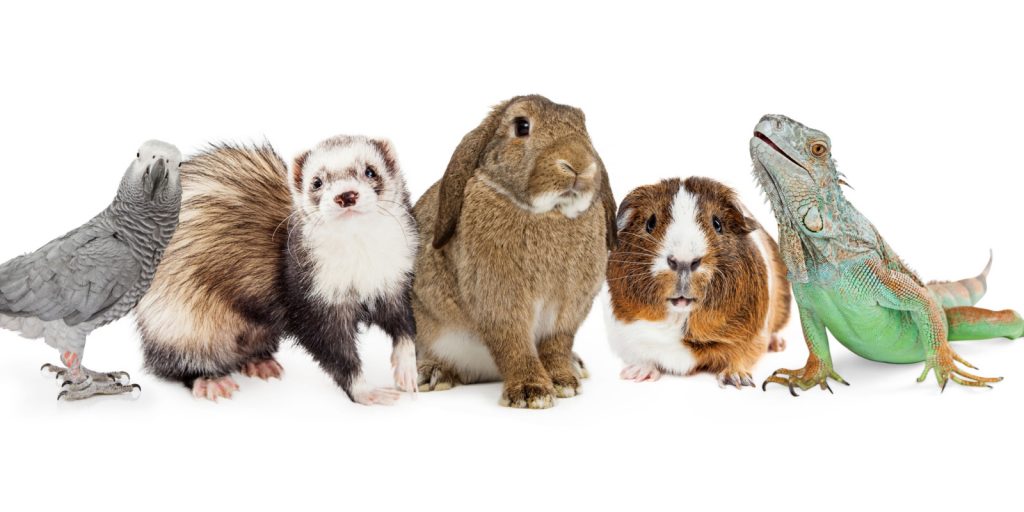Much like dogs and cats, many smaller critter companions need help maintaining their dental health too. The presence of bacteria after eating, that build plaque and tartar on the teeth, can expose them to periodontal disease and a potential risk to their kidneys, heart and/or liver. They are also prone to experiencing other dental issues that cats or dogs do not suffer from.
For instance, rabbits, guinea pigs and chinchillas have continuously growing/erupting cheek teeth and incisors (the small ones up front). Hamsters, gerbils and other small rodents have continuously growing teeth as well but only the incisors. These teeth must be worn down or they can cause dental issues like root impaction, reserve crown disease, abscesses and sharp spurs that can cut their cheeks and/or tongue. Misalignment of teeth is common, and many health conditions are secondary to these dental problems.
Common signs of periodontal disease in small animals;
- Decreased appetite
- Dropping food
- Salivating excessively
- Elongation of teeth
More severe signs are nasal discharge, eye discharge, bulging eyes or discharge under jaw.
Including enough rough fibre by using long stem hays/grasses like Timothy Hay in their diet can help wear down the teeth, as it requires the side-to-side grinding motion that helps control dental growth. Toys like chew blocks, hanging chew charms, grass rings/balls, and sticks (of appropriate wood and size) are great choices to help the balance between tooth growth and tooth wear, and keeps them stimulated and entertained.
Ferrets are true carnivores, like cats, and can benefit from the same dental care, whether you choose toothbrushing, chews or raw meaty bones to work off the plaque and tartar. It is always a good idea to regularly check your pet’s teeth and oral health. Ferrets are prone to breaking their canines by chewing on the cage, exposing them to tooth-root infection.
When it comes to birds’ dental health, they do not have teeth and do not suffer from the resulting diseases. However, much like teeth, beaks can be misaligned, and overgrown, and regular maintenance may be required. To avoid any health issues resulting from an overgrown beak, use chew toys to help wear the beak down and prevent too much growth.
The category of reptiles is so large and covers many different species, so I will briefly touch on a few. Not all reptiles have teeth; turtles and tortoises do not, where as most snakes and lizards do. The common signs of periodontal disease are decreased water or food intake, thickening saliva, yellow plaque or puss, swelling of oral tissue or face (seek veterinary attention). Some snakes and lizards replace their teeth constantly while some take months or years to replace and may require care to avoid damaging them. This would include feeding only the specialized diets these species are meant to eat and nothing too hard that could break their teeth. The most common dental issues these species encounter is mouth rot or ulcerative stomatitis, which is an infection in the gums and mouth caused by small cuts and food stuck in their oral cavity. Snakes and lizards are most vulnerable. If you see food stuck in the oral cavity it is suggested to gently open the mouth, and remove item with a soft, small cotton swab. Keep in mind that the smaller the reptile the more fragile they are.
Bearded Dragons’ dental structures differ from other reptiles as their teeth are directly rooted into their jawbones, and as such they are predisposed to infection and inflammation to the bone. When their teeth are lost/damaged they are not replaced, like chameleons. Best prevention is to regularly clean the teeth. It’s suggested about every other day or at least once a week. Typically done with a dampened cotton swab to rub the plaque off the teeth.
The key to good dental health with small animals and exotics is a proper diet, regular care and the proper toys to limit plaque build up and work off any presence of tartar and of course, check ups with the Veterinarian when needed.












